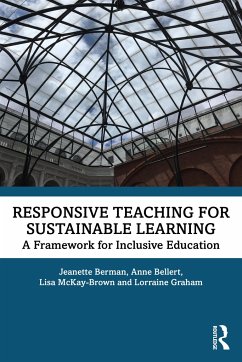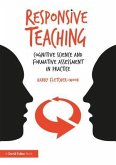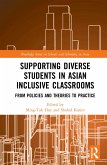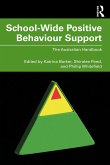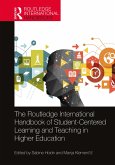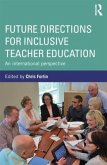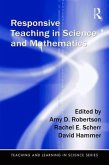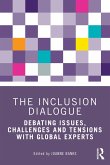Drawing on Australian and international research, this book presents teaching and support strategies for educators to be responsive to the particular learning needs of each of their students and deliver quality inclusive education in a sustainable way.
Based on the Responsive Teaching Framework, an instructionally-focused approach for teaching that is evidence-based, purposeful, and responsive to students' learning needs, this book assists teachers to build on their current capabilities and strengthen their expertise to ensure that every student in their classrooms can be an effective learner. Part I of the book explains the theoretical and practical basis of Sustainable Learning as a way of thinking about inclusive education through a focus on responsive teaching. Part II unpacks each of the eight steps of the Responsive Teaching Framework. These chapters focus on the reflective questions that guide responsive practice, from whole class and individual studentperspectives, outlining practical strategies that can be used, as well as the assessment practices and evidence-gathering needed to support each step of the responsive teaching process. Part III examines the influences that school leaders have on inclusive practice and proposes a Responsive Leadership Framework (RLF). The RLF aligns with the Responsive Teaching Framework to provide a shared language and deepen understanding of Responsive Teaching for Sustainable Learning.
Written for practising educators, school leaders, and postgraduate students, Responsive Teaching for Sustainable Learning delivers models for inclusive, sustainable teaching practice in an easily accessible format.
Based on the Responsive Teaching Framework, an instructionally-focused approach for teaching that is evidence-based, purposeful, and responsive to students' learning needs, this book assists teachers to build on their current capabilities and strengthen their expertise to ensure that every student in their classrooms can be an effective learner. Part I of the book explains the theoretical and practical basis of Sustainable Learning as a way of thinking about inclusive education through a focus on responsive teaching. Part II unpacks each of the eight steps of the Responsive Teaching Framework. These chapters focus on the reflective questions that guide responsive practice, from whole class and individual studentperspectives, outlining practical strategies that can be used, as well as the assessment practices and evidence-gathering needed to support each step of the responsive teaching process. Part III examines the influences that school leaders have on inclusive practice and proposes a Responsive Leadership Framework (RLF). The RLF aligns with the Responsive Teaching Framework to provide a shared language and deepen understanding of Responsive Teaching for Sustainable Learning.
Written for practising educators, school leaders, and postgraduate students, Responsive Teaching for Sustainable Learning delivers models for inclusive, sustainable teaching practice in an easily accessible format.
'This very important book addresses the complexity of classroom learning and provides a unique characterisation of inclusive teacher practice as Responsive Teaching for Sustainable Learning. Importantly, it focuses on research-based, practical examples and reflective questions to develop more effective teaching that effectively supports learning for all students. It is also a practical guide for leaders to strengthen inclusive education across their educational settings.'
Professor Jim Watterston, Dean of the Melbourne Graduate School of Education, University of Melbourne, Australia.
'Every child brings unique attributes to the classroom, and we teach groups of them in a class - How do we reconcile the dilemma of teaching each while teaching all? Berman, Graham, Bellert, and McKay-Brown provide the answer in Responsive Teaching for Sustainable Learning. Their model is based on 8 reflective questions, learning for all, and responsive differentiation. I have long been looking for the book that tells me how to teach all kids as I would teach kids with special needs (not the other way around), and finally I have found it. This book makes an extraordinary contribution to how we think, do, evaluate, and esteem the gifts of every child.'
Emeritus Laureate Professor John Hattie, Chair of the Australian Institute for Teaching and School Leadership and Co-Director of the Hattie Family Foundation, Australia.
'Responsive Teaching for Sustainable Learning is a must read for any teacher who sees the possibilities and capabilities of every student. Evidence informed, values driven and filled with practical guidance, the book uses an inquiry framework to generate critical thinking around responsive teaching and learning that lasts - so central in building authentic 'inclusion'.'
Professor Anne Graham, AO, Director of the Centre for Children and Young People, Southern Cross University, Australia.
'How refreshing to find a book that explores responsive teaching and sustainable learning in classrooms and schools where "diversity just is", where educational leaders and teachers value that richness and know that together they can transform lives and shape a more inclusive society. This well-informed book offers much to teachers and teacher educators who know the importance of context and are seeking theoretically rich, evidence-based approaches to assessment, teaching and learning centred on the idea that all students have rights, belong and are capable learners.'
Dr Jude Macarthur, Senior Lecturer, University of Auckland, Aotearoa New Zealand and Governing Committee member for the Inclusive Education Action Group.
Professor Jim Watterston, Dean of the Melbourne Graduate School of Education, University of Melbourne, Australia.
'Every child brings unique attributes to the classroom, and we teach groups of them in a class - How do we reconcile the dilemma of teaching each while teaching all? Berman, Graham, Bellert, and McKay-Brown provide the answer in Responsive Teaching for Sustainable Learning. Their model is based on 8 reflective questions, learning for all, and responsive differentiation. I have long been looking for the book that tells me how to teach all kids as I would teach kids with special needs (not the other way around), and finally I have found it. This book makes an extraordinary contribution to how we think, do, evaluate, and esteem the gifts of every child.'
Emeritus Laureate Professor John Hattie, Chair of the Australian Institute for Teaching and School Leadership and Co-Director of the Hattie Family Foundation, Australia.
'Responsive Teaching for Sustainable Learning is a must read for any teacher who sees the possibilities and capabilities of every student. Evidence informed, values driven and filled with practical guidance, the book uses an inquiry framework to generate critical thinking around responsive teaching and learning that lasts - so central in building authentic 'inclusion'.'
Professor Anne Graham, AO, Director of the Centre for Children and Young People, Southern Cross University, Australia.
'How refreshing to find a book that explores responsive teaching and sustainable learning in classrooms and schools where "diversity just is", where educational leaders and teachers value that richness and know that together they can transform lives and shape a more inclusive society. This well-informed book offers much to teachers and teacher educators who know the importance of context and are seeking theoretically rich, evidence-based approaches to assessment, teaching and learning centred on the idea that all students have rights, belong and are capable learners.'
Dr Jude Macarthur, Senior Lecturer, University of Auckland, Aotearoa New Zealand and Governing Committee member for the Inclusive Education Action Group.

